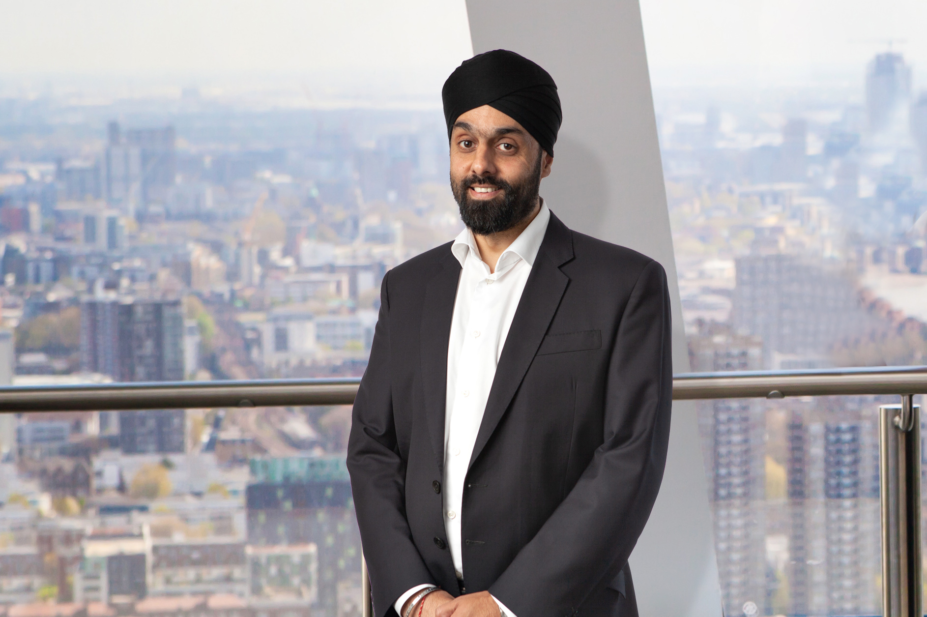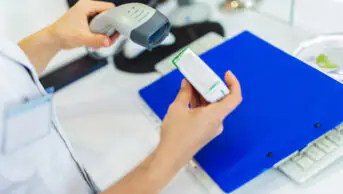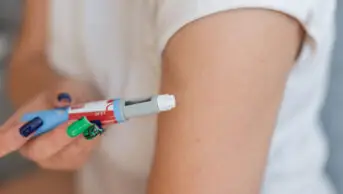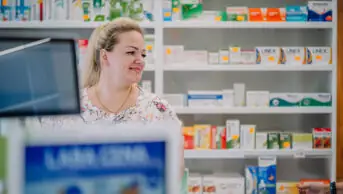
Balvinder Matharu
Intellectual property (IP) is a specialist area, but the role of the patent attorney is varied and I can’t think of many other careers that blend science, law and commercial awareness in the way it does. Every day is interesting and brings new opportunities to learn and develop.
I am a UK and European-qualified patent attorney working at a specialist IP firm, HGF Ltd. The firm provides IP services through a network of offices across Europe and I am a partner in the pharmaceutical team based in Manchester.
8:30 — start
We are visited by a professor from a local university who has developed a new muco-adhesive gel formulation. We have some familiarity with his research but the purpose of the meeting is to try to spot what differentiates the new formulation from what has already been produced.
Prior to this meeting, our team has analysed several documents and journal publications to quickly gain an appreciation of the technology landscape but we now need to ask the right questions to tease out all the possible angles we could use to support patentability.
While most life science patent attorneys have a chemistry or biology background, I think a pharmacy background is very well suited to a career as a patent attorney
A baseline knowledge of science is essential and, while most life science patent attorneys have a chemistry or biology background, I think a pharmacy background is very well suited to a career as a patent attorney. The breadth of understanding of disease states and medicine-based treatment approaches, together with the level of knowledge of chemistry, pharmacology and the formulation sciences, provide a natural fit for the types of subject matter we deal with for pharmaceutical inventions (e.g. new molecules, solid state forms, new therapeutic uses and dosage regimens, and new drug delivery formulations).
There is no need to be an expert in any of these areas and, while a PhD may be helpful, it is certainly not a requirement. What is more important, is an interest in wanting to understand a new technology and a willingness to apply the focus needed to carefully and precisely describe the main features of a technology, ensuring the words you choose convey the exact meaning intended.
These skills can be honed during the training process but a thoughtful approach to words and language from the outset is a real advantage.
11:30
I turn to some patent applications we previously filed with the patent office. A significant part of our time is spent justifying why inventions we have applied for are worthy of patent protection. An important question is whether an invention would have been obvious when looked at through the eyes of the skilled person. This is often a grey area (as are many areas in law) and an ability to devise arguments, often with limited information, to overcome objections is an important part of the job. Working to tight deadlines and handling several projects simultaneously is also important.
13:30
Much of my practice currently involves defending patents against challenges raised by generic companies at the European Patent Office (EPO). I am currently defending a patent protecting certain medical uses of the cannabinoid derivative, cannabidiol.
I really enjoy the advocacy part of the role and the satisfaction gained from defending an important patent is immense
The product is gaining a lot of interest as it approaches regulatory approval in Europe. We have already filed written submissions, in which we have responded to the allegations made by the generic companies, and we are now preparing for a mini-hearing in Munich, Germany. The hearing is similar to a court proceeding but less formal and will involve both parties and a panel from the EPO, whose task it will be to decide whether or not the patent is valid. These hearings are stressful and require a great deal of preparation, but I really enjoy the advocacy part of the role and the satisfaction gained from defending an important patent is immense.
15:30
During my patent career, I have looked after portfolios covering several marketed products and I have been part of global teams with colleagues from research and development, regulatory, commercial, clinical and legal. One of these teams is currently considering a major out-licensing deal and has set-up a call to understand when their newly approved product is likely to lose exclusivity — i.e. when generic products are likely to enter the market — which is not as easy to determine as it may sound.
This loss-of-exclusivity information will impact the business sales forecast for the product and the value of the deal. If suitable financial terms can be agreed (e.g. in the form of a significant upfront payment and ongoing royalties) the license will allow the third party to commercialise the product, but only in certain territories and only for certain therapeutic indications (licensed field). The company is keen to retain some rights to sell the product outside the licensed field.
IP is often central to negotiating deals and when learning to describe complex technical and legal situations with limited information to senior management. This ensures certain risks are understood before decisions are made — e.g. whether or not to acquire a biotech company (sometimes for billions of dollars). This process can be stressful but it certainly sharpens your communication skills.
16:30
We have been asked for some advice about how to enforce a patent against an infringer in the UK. This is a complex area requiring assessment of various factors, but the insights I gained through working as a community pharmacist, such as an appreciation of how pharmacists interact with other healthcare professionals and how the prescribing and pharmaceutical supply and distribution chain works, certainly helps when defining these strategies.
17:30 — finish
My day usually ends with some business development and/or training work. I regularly present to clients on developments in patent law and I enjoy working with our trainees to help them progress through their careers.
How to get a job as a patent attorney
- Finding a route into the profession may not be straightforward as trainee positions can be hard to come by. My advice is to thoroughly research the industry and the different firms and try and discuss your interests with those in the profession before applying.
- Look out for opportunities to gain some experience of working with intellectual property, either within industry, a patent firm or a university technology transfer office.
- Try to explore the differences between private practice and in-house roles. For example, a private practice role typically offers more variety in terms of technology/clients while an in-house role is likely to give you more commercial experience.
- The training is tough and the exams should not be underestimated. It typically takes 3–6 years to qualify
- For further information about the role and expected salary, I would recommend the following websites:


